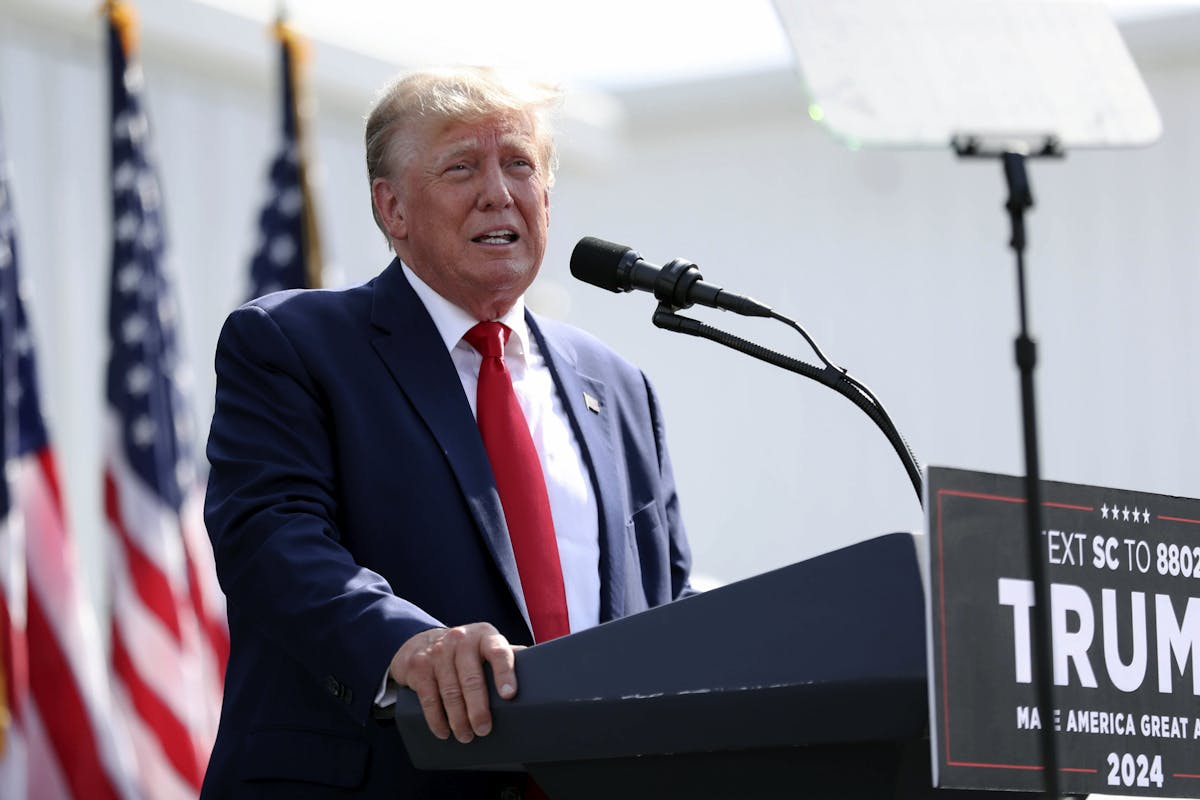Jack Smith Alleges That Trump ‘Stands Alone in American History for His Alleged Crimes’
The special counsel doubles down on his accusation that the former president engaged in a ‘concerted criminal effort’ to overturn the 2020 election.

The filing by Special Counsel Jack Smith of a 79-page memorandum rebuffing President Trump’s efforts to have the January 6 case against him dismissed disclosed the most fulsome portrait yet of the prosecutor’s dim view of America’s 45th president.
The government’s “Omnibus Motion” cites Supreme Court precedent, Constitutional clauses, and the Federalist Papers. It aims to persuade Judge Tanya Chutkan that Mr. Trump engaged “in a concerted criminal effort to overturn the presidential election results and prevent the lawful transfer of power to his successor.”
“No other president,” Mr. Smith asserts, “has engaged in conspiracy and obstruction to overturn valid election results and illegitimately retain power.” The prosecutor claims that his indictment “squarely charges” Mr. Trump for this conduct, and that the former president’s “constitutional and statutory challenges to it are meritless.”
Mr. Smith’s assessment that Mr. Trump “stands alone in American history for his alleged crimes” comes in response to the former president’s efforts to have the charges against him dismissed on grounds both constitutional and statutory. Mr. Trump has argued that the prosecution is barred by the Constitution’s impeachment and double jeopardy clauses.
Not so, the special counsel responds that the “knowingly false statements regarding specific facts” used to “commit the crimes charged in the indictment” are not protected by the First Amendment, as Mr. Trump claims. That amendment, the prosecutor writes, “has never been thought to foreclose the prosecution of long established crimes” committed through speech.
Accusing Mr. Trump of being “long on rhetoric but short on law,” Mr. Smith reckons that the former president’s reliance on constitutional bedrock is “frivolous.” His arguments, the prosecutor asserts, are “strained” and “meritless” and rely on an “inaccurate and self-serving characterization” of the charges. The former president, Mr. Smith writes, proceeds from “faulty premises.”
One of those premises, Mr. Smith reasons, is that that double jeopardy’s protections of “life or limb” applies to an acquittal in an impeachment proceeding, like the one Mr. Trump secured in January of 2021. Instead, the special counsel proffers the argument that “because the only remedies available in the impeachment proceedings were removal and disqualification,” it is “entirely inapplicable” to the former president.
When it comes to impeachment, Mr. Smith allows that he did not charge Mr. Trump with incitement to insurrection, the sole article of impeachment. The prosecutor instead endorses the position that the Constitution “permits criminal prosecution where, as here, a defendant has been impeached by the House but not convicted by the Senate.” He finds “no corresponding limits” to prosecution after a “not guilty” verdict at impeachment.
Mr. Smith’s reminder that he chose not charge Mr. Trump with incitement — he relates that act of forbearance twice in this filing — suggests that the omission was intentional, likely because he knew it would not stand up to a double jeopardy challenge. Instead, the prosecutor has opted for charges that do not overlap with any Mr. Trump has faced before, in any forum.
The prosecutor — and Judge Chutkan — know, though, that double jeopardy is more than a shield against the same charges. Courts have also found that it can offer protection against being charged for the same underlying action. This point was eloquently marked, in a dissent to Gamble v. United States, by Justices Neil Gorsuch and Ruth Bader Ginsberg. Justice Gorsuch writes that a “free society does not allow its government to try the same individual for the same crime until it’s happy with the result.”
The special counsel portrays himself as the tribune of the “common-sense intuition that being terminated from, or prevented from obtaining, a job is qualitatively different than facing a prison term or execution,” meaning that impeachment and criminal charges are two tracks, and never the twain shall meet.
Mr. Smith’s filing surfaces a sense of brass tacks as well as Talmudic dexterity. He advises Judge Chutkan to first rule on Mr. Trump’s assertion of presidential immunity and invocation of double jeopardy. That priority is due to their eligibility for interlocutory appeal, meaning that Mr. Trump could immediately ask an appellate court to reverse Judge Chutkan. Mr. Smith, it appears, is in a rush.

